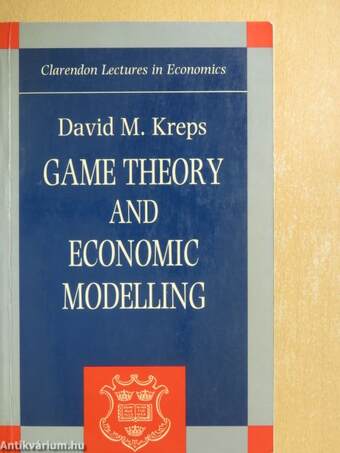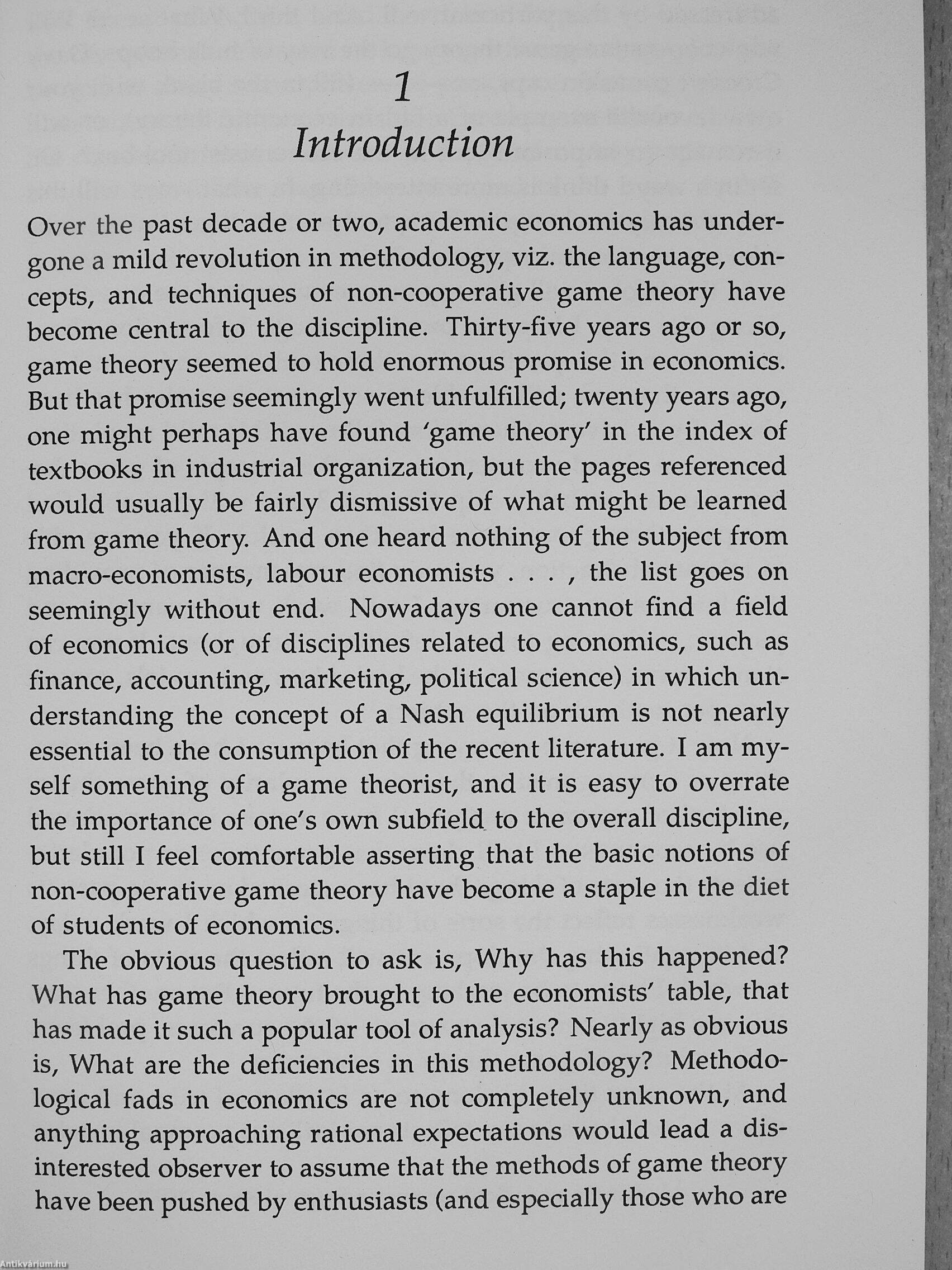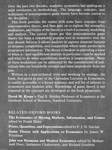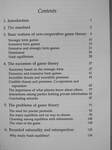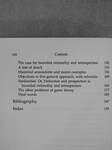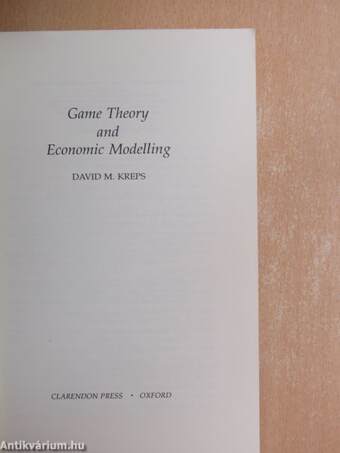1.067.894
kiadvánnyal nyújtjuk Magyarország legnagyobb antikvár könyv-kínálatát

VISSZA
A TETEJÉRE
JAVASLATOKÉszre-
vételek
Game Theory and Economic Modelling
| Kiadó: | Clarendon Press |
|---|---|
| Kiadás helye: | Oxford |
| Kiadás éve: | |
| Kötés típusa: | Ragasztott papírkötés |
| Oldalszám: | 195 oldal |
| Sorozatcím: | Clarendon Lectures in Economics |
| Kötetszám: | |
| Nyelv: | Angol |
| Méret: | 22 cm x 14 cm |
| ISBN: | 0-19-828381-4 |
naponta értesítjük a beérkező friss
kiadványokról
naponta értesítjük a beérkező friss
kiadványokról
Előszó
TovábbFülszöveg
Over the past two decades, academic economics has undergone a mild revolution in methodology. The language, concepts, and techniques of noncooperative game theory have become central to the discipline.
This book provides the reader with some basic concepts from noncooperative theory, and then goes on to explore the strengths, weaknesses, and future of the theory as a tool of economic modelling and analysis. The central theses are that noncooperative game theory has been a remarkably popular tool in economics over the past decade because it allows analysts to capture essential features of dynamic competition, and competition where some parties have proprietary information. The theory is weakest in providing a sense of when it—and equilibrium analysis in particular—can be applied and what to do when equilibrium analysis is inappropriate. Many of these weaknesses can be addressed by the consideration of individuals who are boundedly rational and learn imperfectly from the past.... Tovább
Fülszöveg
Over the past two decades, academic economics has undergone a mild revolution in methodology. The language, concepts, and techniques of noncooperative game theory have become central to the discipline.
This book provides the reader with some basic concepts from noncooperative theory, and then goes on to explore the strengths, weaknesses, and future of the theory as a tool of economic modelling and analysis. The central theses are that noncooperative game theory has been a remarkably popular tool in economics over the past decade because it allows analysts to capture essential features of dynamic competition, and competition where some parties have proprietary information. The theory is weakest in providing a sense of when it—and equilibrium analysis in particular—can be applied and what to do when equilibrium analysis is inappropriate. Many of these weaknesses can be addressed by the consideration of individuals who are boundedly rational and learn imperfectly from the past.
Written in a non-technical style and working by analogy, the book, first given as part of the Clarendon Lectures in Economics, is readily accessible to a broad audience and will be of interest to economists and students alike. Knowledge of game theory is not required as the concepts are developed as the book progresses.
David M. Kreps is Paul E. Holden Professor of Economics at the Graduate School of Business, Stanford University.
RELATED OXFORD BOOKS
The Economics of Missing Markets, Information, and Games
edited by Frank Hahn
Prices, Quantities, and Expectations edited by P. J. N. Sinclair
Game Theory with Applications to Economics by James W. Friedman
John von Neumann and Modern Economics edited by Mohammed Dore, Sukhamoy Chakravarty, and Richard Goodwin Vissza
Témakörök
- Közgazdaságtan > Közgazdasági elméletek > Egyéb
- Közgazdaságtan > Egyéb
- Idegennyelv > Idegennyelvű könyvek > Angol > Természettudományok > Matematika
- Természettudomány > Matematika > Egyéb
- Természettudomány > Matematika > Idegennyelvű
- Természettudomány > Matematika > Társtudományok > Egyéb
- Idegennyelv > Idegennyelvű könyvek > Angol > Közgazdaságtan > Egyéb
- Idegennyelv > Idegennyelvű könyvek > Angol > Közgazdaságtan > Közgazdasági elméletek > Egyéb



